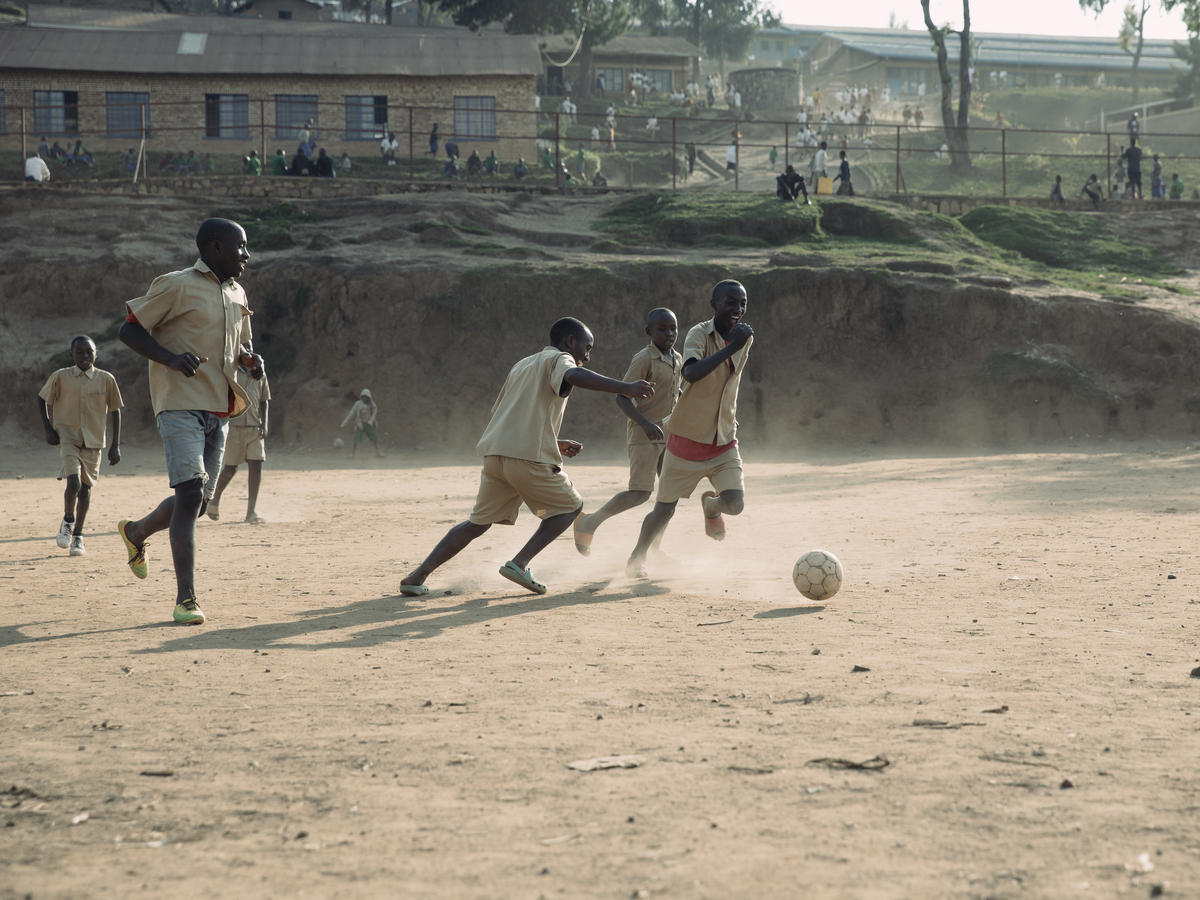In Indonesia, a female refugee karate champion and trainer is inspiring others

In Indonesia, a female refugee karate champion and trainer is inspiring others
Children and young people in white uniforms gather in the blue-painted room, talking and laughing with each other as they prepare for practice. Here at their karate club in Cisarua, Bogor, Indonesia, they are waiting for their trainer for the afternoon: Meena Asadi, a 28-year-old Afghan refugee and karate champion.
Meena, who has been living in Indonesia since 2015, is the Founder and Head Coach of the Cisarua Refugee Shotokan Karate Club (CRSKC). She first started practising karate 16 years ago; it quickly became her life’s passion.
“Karate is very important to me. It gives me the confidence and ability to manage my life,” Meena explains.
Established in 2016, her karate club currently has more than 30 students, of whom 10 are refugee girls from Iran, Afghanistan, and Pakistan. Under her tutelage, some of her students have received official belt rank certificates. Meena has also developed a close connection with Indonesian karate athletes and the Institute of Karate-Do Indonesia (INKAI).
“Why should being a girl stop me from doing sports and other social activities?”
Growing up in Afghanistan, Meena experienced many difficulties in her journey to chase her karate dreams.
“When I saw that boys could do sports freely, I wondered why I could not do the same. Why should being a girl stop me from doing sports and other social activities?” she recalls.
Instead of stifling her ambitions, these challenges motivated her to pursue karate professionally and to help break perceptions of what girls could and couldn’t do. She joined Afghanistan’s National Karate Federation and eventually became the owner of a karate club, teaching more than 150 students – both boys and girls.
The circumstances in Afghanistan forced her to flee the country, initially to Pakistan. Despite all the challenges that came with being a refugee, Meena remained devoted to her passion. While in Pakistan, she participated vociferously in karate competitions, winning 30 medals in total.
She competed in the 2010 South Asian Games held in Bangladesh and won three silver medals. At the 2012 South Asian Karate Championship in India, she was the sole female athlete representing Afghanistan and won two medals for the country.
In 2018, Meena received her 3rd Dan certificate from the Karatenomichi World Federation (KWF), an elite international non-profit karate organization based in Tokyo, Japan. And just recently, she participated alongside 300 competitors in the Walikota Bogor Cup. At this virtual karate competition held in Indonesia, the athletes sent in recorded videos which were then evaluated by a panel of judges. Meena won a gold medal.
Reflecting on how karate has helped to shape her, Meena explains: “Karate has taught me how to fight against challenges. I really hope I can inspire other women to fight for their rights. What I am today is the impact of what karate does to my life.”
Meena has high hopes for the Refugee Olympic Team at the Olympic Games in Tokyo, among whom are several karate athletes.
“I hope that the Refugee Olympic Team will be successful, because their achievements will show the world that refugees are also talented people and we just need the opportunity to prove ourselves,” she says.









